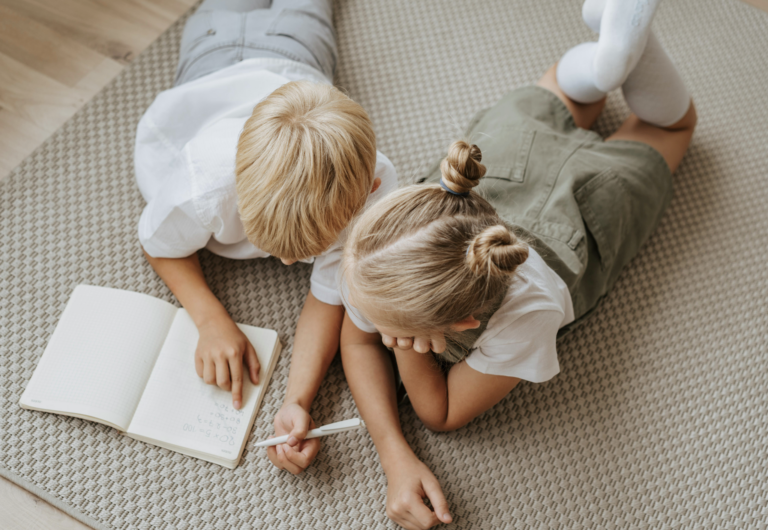

The more you talk to your child about starting school, the more comfortable they’ll start to get with the idea. Chat about the name of the school, their teacher and anything else you know about the school. Tell them who’ll drop them off and pick them up. This is such a good way to help them start processing and feel more comfortable with this shift. You should get information about what to expect on the first day so you can talk through that too. If you don’t, ask for it.
Explain that it’s OK to feel nervous or be scared but remember to lead from a place of optimism.
One of the biggest fears amongst kids starting school is separation, so do what you can to encourage independence. Remind them that while you may be apart for a while, you’ll be there at the end of the day to hear about all of the exciting things they’ve been up to.
Beyond that, independence is about looking after themselves too. Encourage your child to try dressing on their own, tackle zips and buttons, and get used to taking off and putting on their jackets. They should know how to eat using a knife, fork and spoon and be able to go to the toilet (and wash and dry their hands thoroughly – especially important at the moment) without help too.
If your little one has already been to nursery or pre-school, they’ll probably already know plenty about making friends. If they’re starting school straight from home, you might need to give them a little nudge. Encourage your child to talk to other children when they’re at school. Suggest ways they could chat go about it, things they might find in common with others at school and encourage them to get involved in play.
School may be the first time your kids have had to listen and sit still in such a “formal” environment. For some, it can come as a bit of a shock. You can get them ready for this by encouraging family discussions at the dinner table, giving everyone the chance to listen and speak on everyday topics. Developing these skills mean they’ll not only be able to listen attentively to their teacher, but they’ll be able to fully participate in class too. It’s a full 360 experience for them, meaning they’ll get as much as possible out of school.
Some children will already be able to read and write when they start Reception while others will be totally new learners. Neither is right or wrong. Kids don’t have to be able to read their own name when they start school. But it is useful for them to be able to recognise their name. Being able to recognise their own name just means they are less likely to bring home someone else’s uniform or jacket, and means they’ll be able to find their own drawer in the classroom. Before starting school, explore what the letters in their name look like and help them try writing their name, too.
Some kids can’t get out of the door and into school quick enough, while others are more anxious. Wherever your child sits on that sliding scale (and it may vary from day to day), it’s important that as parents and carers, we are enthusiastic about school. Whatever our experience was, it’s important that we instil a sense of excitement and positivity in them as soon as possible. We’re our kids biggest guides on how to respond and react to things and they will mirror our behaviours.
One of the biggest hurdles for most families with a new routine is the school run. It’s worth giving the whole routine a go a few times in the run up to the start of term to get it embedded in muscle memory. You could even go all out, making it a full dress rehearsal by including dressing in school uniform if you wanted to!
On the day your child is starting school, try to be as relaxed as possible. Set everything out the night before so you aren’t frantically trying to find a missing sock or a lost school jumper and be sure to leave plenty of time for those all important first day pictures!
Keep an eye on our Instagram and be sure to sign up for our newsletter Coffee with Gi for more tips on starting school from our friend Daisy Upton!